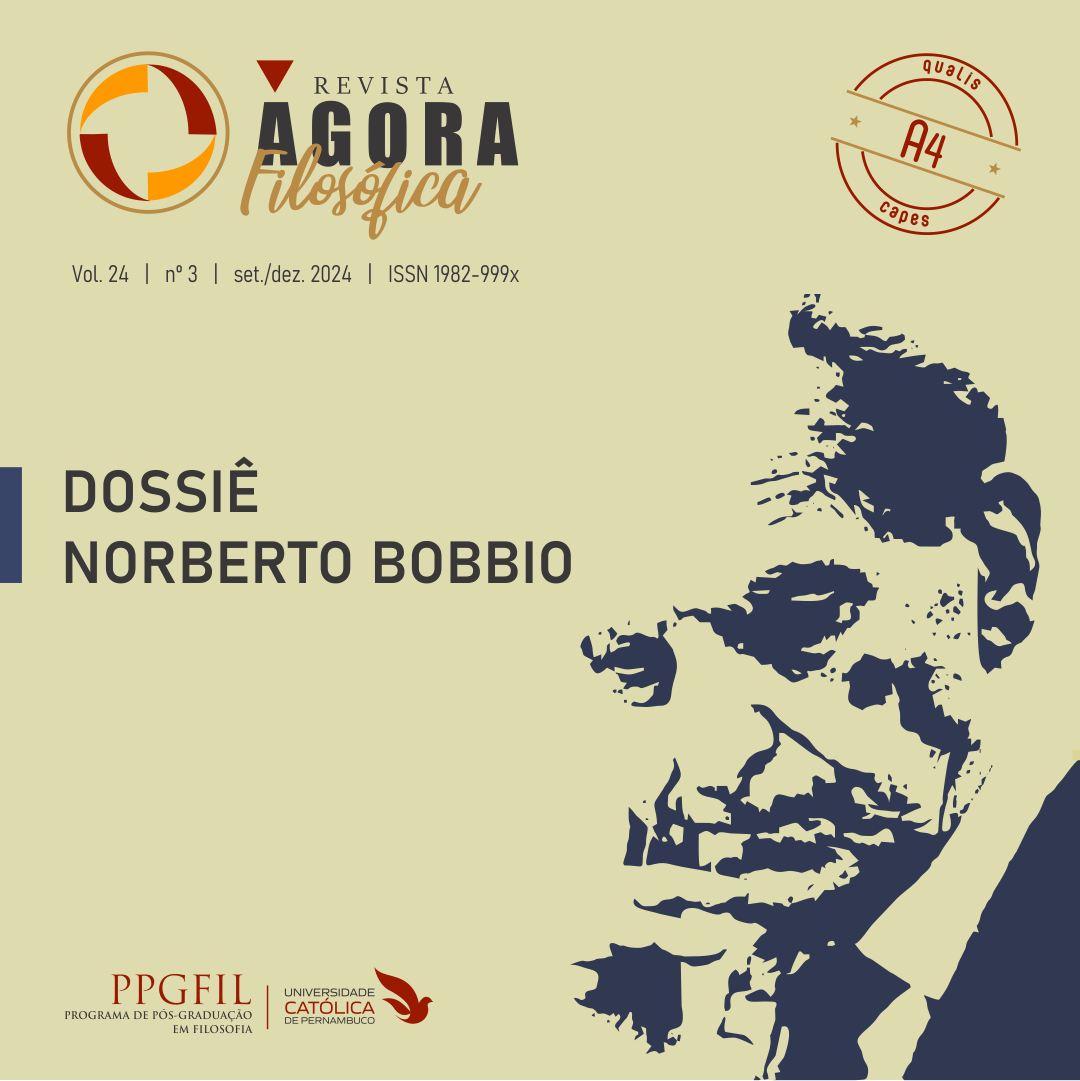Philosophy, literature and meditation for children: a proposal focused on the development of critical consciousness and emotional management
DOI:
https://doi.org/10.25247/P1982-999X.2024.v24n3.p152-171Keywords:
creativity, philosophical criticism, education, emotional intelligenceAbstract
The purpose of this paper is to argue for a multidisciplinary program, which can be called “Philosophy, Literature and Meditation Workshops for Children” as a complementary component in the educational training of children. In fact, adherence to this component is an attempt to improve the educational attainment, encompassing both the intellectual and emotional domains. It is known that Philosophy is an area of knowledge that becomes essential for the development of critical thinking. It is also known that Literature, philosophical or not, is what brings us to new reflective possibilities, so the junction of these two disciplines can offer a very fertile ground for intellectual development. However, facing the nuances that pervade the construction of the human being it cannot be given less attention to the emotional development. In this way, there are evidence about the importance of the use of meditation to develop some competences such as attention and awareness, ability to understand and manage emotions, development of relational skills, among others. Given this, it is intended to argue that these workshops have much to contribute to human improvement in their educational training.
Downloads
References
BRENIFIER, Oscar. The practice of philosophy with children. 2015.
CARNEIRO, Thomas. Filosofia com crianças. Disponível em: https://filosofiacritica.wordpress.com/o-que-e-a-filosofia-com-criancas/. Acesso em: 4 fev. 2018.
COSERU, Christian. Mind in Indian Buddhist Philosophy, The stanford encyclopedia of philosophy. Spring 2017 Edition. Edward N. Zalta (ed.). Disponível em: https://plato.stanford.edu/archives/spr2017/entries/mind-indian-buddhism/. Acesso em: 27 dez. 2023.
DE PAIVA, Natália Moraes Nolêto; COSTA, J. A influência da tecnologia na infância: desenvolvimento ou ameaça. Psicologia. pt, v. 1, p. 1-13, 2015.
DINIS, Carlos M.S.J. O que é a filosofia para crianças: programa de Matthew Lipman. Dissertação de Mestrado. Covilhã. 2011. Disponível em: https://ubibliorum.ubi.pt/bitstream/10400.6/1319/1/Disserta%C3%A7%C3%A3o_Carlos%20Dinis.pdf. Acesso em: 15 mar. 2023.
FREIRE, Paulo. Pedagogia do oprimido. São Paulo: Paz e Terra. 1996.
FREIRE, Paulo. Educação como prática da liberdade. 19. ed. Rio de Janeiro: Paz e Terra, 1989.
GALLO, Silvio. Metodologia do ensino de filosofia: Uma didática para o ensino médio. Campinas: Papirus, 2012.
GOLEMAN, Daniel. Inteligência emocional. Tradução: Marcos Santarrita. Rio de Janeiro: Objetiva, 2011.
GUEGUEN, C. Pour une enfance heureuse. Robert Laffont: 2014.
HEDAYATI, Mehrnoosh, GHAEDI, Yahya. Effects of the philosophy for children program through the community of inquiry method on the improvement of interpersonal relationship skills in primary school students. Childhood & Philosophy [enlinea]. 2009, 5(9), 199-217ISSN: 2525-5061. Disponível em: https://www.redalyc.org/articulo.oa?id=512051710004. Acesso em: 15 maio 2023.
HORNE, Z., POWELL, D., How Large Is the Role of Emotion in Judgments of Moral Dilemmas? PLoS ONE 11(7): e0154780. 2016. Disponível em: https://doi.org/10.1371/journal.pone.0154780. Acesso em: 4 dez. 2023.
KARTIKA, Imelda Rahmayunia et al. Meditative Therapy in Reducing Anxiety as a Complementary Therapy: a Trend and Knowledge on Adolescent. INDONESIAN NURSING JOURNAL OF EDUCATION AND CLINIC (INJEC), v. 8, n. 1, 2023.
KUNSCH, Clarice Krohling. Excesso de atividades, consumo e superproteção: possíveis fatores de tédio em crianças. Veras, v. 4, n. 1, p. 99-115, 2014.
LELAND, Matt. Mindfulness and student success. Journal of Adult Education, v. 44, n. 1, p. 19-24, 2015.
LENOIR, François. Philosopher et Méditer avec les enfants. Albin Michel: 2016.
LIPMAN, Mathew. A filosofia vai à escola. Tradução: Maria Elice de Brzezinski Prestes e Lucia Maria Silva Kremer. São Paulo: Summus, 1990.
LIPMAN, Mathew. O Pensar na educação. Petrópolis: Vozes, 1995.
LIPMAN, Mathew, SHARP, Ann Margareth, OSCANYAN, Frederick S. Filosofia na sala de aula. Tradução e adaptação de Ana Luiza Fernandes Falcone. 2. ed. São Paulo: Nova Alexandria, 2014.
LO, H. H. M. et al. The Effect of a Family-Based Mindfulness Intervention on Children with Attention Deficit and Hyperactivity Symptoms and Their Parents: Design and Rationale for a Randomized, Controlled Clinical Trial (Study Protocol). BMC Psychiatry 16 (2016): 65. PMC. Web. 26 June 2017.
PACHECO, Marina Buzin; ANDREIS, Greice da Silva Lorenzzetti. Causas das dificuldades de aprendizagem em Matemática: percepção de professores e estudantes do 3º ano do Ensino Médio. Revista Principia, João Pessoa, v. 38, p. 105-119, 2018.
PARKER, Alison E. et al. The impact of mindfulness education on elementary school students: Evaluation of the Master Mind program. Advances in School Mental Health Promotion, v. 7, n. 3, p. 184-204, 2014.
PRITCHARD, M. Philosophy for Children. The Stanford Encyclopedia of Philosophy. Spring 2017 Edition. Edward N. Zalta (ed.). Disponível em: <https://plato.stanford.edu/archives/spr2017/entries/children/>. Acesso em: 28 dez. 2023.
RANCIÈRE, Jacques. O mestre ignorante: cinco lições sobre a emancipação intelectual. Tradução: Lílian do Valle. 3. ed. 4. reimp. Belo Horizonte: Autêntica, 2015.
ROESER, Robert W. Mindfulness in students’ motivation and learning in school. Handbook on motivation at school, p. 385-407, 2016.
SCHULTZ, David et al. Emotion knowledge in economically disadvantaged children: Self-regulatory antecedents and relations to social difficulties and withdrawal. Development and psychopathology, v. 13, n. 1, p. 53-67, 2001.
SNEL, E. Sitting still like a frog: mindfulness exercises for kids (and their parents). Boston: Shambala Publication, 2013.
SUÁREZ-GARCÍA, Zara et al. The effect of a mindfulness-based intervention on attention, self-control, and aggressiveness in primary school pupils. International Journal of Environmental Research and Public Health, v. 17, n. 7, p. 2447, 2020.
Downloads
Published
Issue
Section
License
Copyright (c) 2024 Eugênia Ribeiro Teles, Gilmara Coutinho Pereira

This work is licensed under a Creative Commons Attribution 4.0 International License.
You are free to:
- Share — copy and redistribute the material in any medium or format for any purpose, even commercially.
- Adapt — remix, transform, and build upon the material for any purpose, even commercially.
- The licensor cannot revoke these freedoms as long as you follow the license terms.
Under the following terms:
- Attribution — You must give appropriate credit , provide a link to the license, and indicate if changes were made . You may do so in any reasonable manner, but not in any way that suggests the licensor endorses you or your use.
- No additional restrictions — You may not apply legal terms or technological measures that legally restrict others from doing anything the license permits.
Notices:
You do not have to comply with the license for elements of the material in the public domain or where your use is permitted by an applicable exception or limitation .
No warranties are given. The license may not give you all of the permissions necessary for your intended use. For example, other rights such as publicity, privacy, or moral rights may limit how you use the material.
















